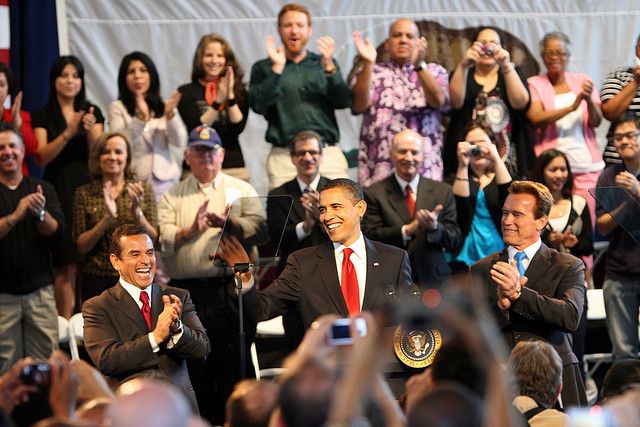Back in 1959, President Eisenhower signed legislation creating the Advisory Commission on Intergovernmental Relations, composed of a grab-bag of federal, state and local officials, along with several private citizens. Its mission, according to the defunct website of the now-defunct agency, was “to study and consider the federal government’s intergovernmental relationships and the nation’s intergovernmental machination.”
The commission produced material that’s just about as exciting as intergovernmental machination can be. Seriously, the ACIR produced some fascinating work (if you’re into that type of thing).
For instance, it published a “federal grant fragmentation index” that tried to measure the efficiency of grant programs. It issued a rather bold challenge — for a federally created commission, at least — to unfunded federal mandates, writing, “State government often are treated as just another interest group.” It produced reports on court rulings affecting local governments, on block grants and even on metropolitan planning organizations.
But the ACIR died during Newt Gingrich’s term as House speaker as party polarization increased, power concentrated in D.C., congressional support waned and special interests rose. (The report on unfunded mandates didn’t do the ACIR any good, either.) Washington’s partisan environment just wasn’t suitable for a standing committee that was reflective and even critical about how government worked.
This history is particularly interesting in the context of the Brookings Institution’s new push to reform federalism. Bruce Katz and Mark Muro of the think tank’s Metropolitan Policy Program have written a framing paper to accompany a handful of policy proposals that they recommend the federal government pass, calling it “a sound platform for state and regional execution on” innovation, advanced manufacturing, infrastructure and other “big stuff.”
But given the ACIR’s death-by-D.C., the framing paper is striking in how closely it ties the need for reforming federalism to Washington’s failures. For the Brookings folks, D.C.’s hyper-partisanship is a reason for a renewed focus on intergovernmental relations, not a reason to shy away from it.
“Partisan rancor,” the report warns, “convulses an increasingly outmoded federal enterprise.” Indeed, most of the document’s accompanying charts are illustrations not of the strengths of cities and metros, as you normally find in Brookings Metro papers, but of Congress’s polarization and inaction.
This is, of course, by design. The fact that the majority of economic growth occurs in urban areas has by now seeped, at least to some degree, into the political and public consciousness. But the report challenges the notion that Congress is the party most responsible for overseeing this growth.
The Brookings report essentially calls for an inversion of Reagan’s “New Federalism.” The Republican hero urged the federal government to cut assistance to state and local governments so that they could flourish. Katz and Muro, in contrast, call for the federal government to engage with state and local governments because they are flourishing.
In particular, they call for a “bottom-up” federalism that provides a national platform for states and metros and that facilitates the problem-solving efforts of “its sub-national partners in federalism.”
This type of federal reform effort is long overdue. That said, the report faces a couple of its own intergovernmental challenges (beyond actually getting Congress to pay attention).
First, the report applauds innovations happening at the state level and mentions state governments as important partners in reforming federalism. This is so, just by definition. But states can also be terribly retrograde and resistant to change, as evidenced by state implementation (or not) of the Affordable Care Act. States can also be terrible, particularly on transportation funding, to their cities and metros: State, metro and city interests — or those of their politicians — are not always aligned. Facilitating good state innovation without empowering states to stifle cities and metros will be important.
Second, and related to the role of states: The place of cities in any intergovernmental hierarchy is problematic. Cities are creatures of states, which poses a structural challenge that can put even the most powerful cities at the mercy of states and the federal government. The tension between these lower levels of government and their states will only grow as economic geography becomes more out of sync with political boundaries.
Of course, the very purpose of reforming federalism is to start tackling these challenges. As the report hints, reestablishing an agency of intergovernmental affairs wouldn’t be a bad place to start, especially if it produced a few provocative reports about intergovernmental machination.


_600_350_80_s_c1.jpg)













